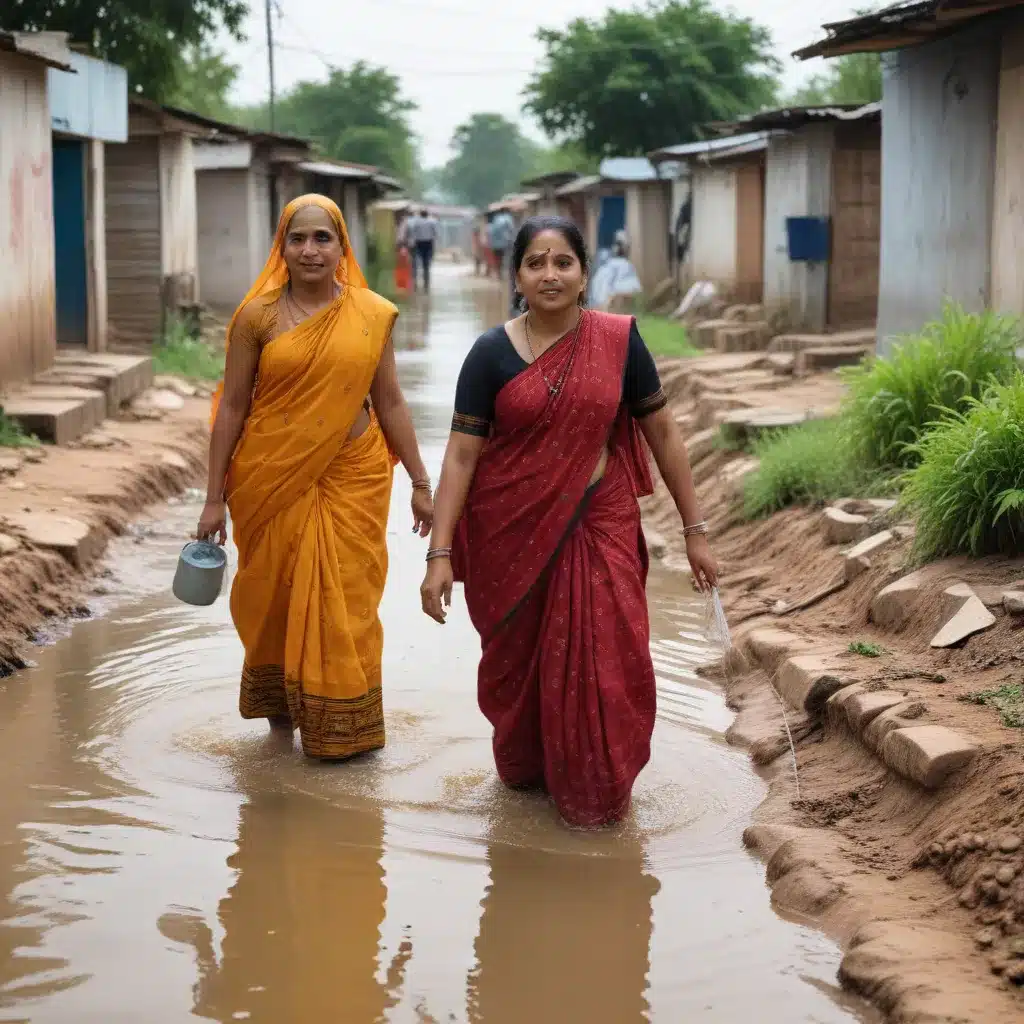
The Importance of WASH-Centered Resilience
As a seasoned expert in water and sanitation services, community engagement, and advocacy, I have witnessed firsthand the critical role that WASH (Water, Sanitation, and Hygiene) plays in enhancing community resilience, particularly in the face of disaster risks and the growing impacts of climate change. In the vibrant city of Hyderabad, Pakistan, where vulnerabilities to natural hazards and environmental stresses are ever-present, a comprehensive approach to WASH-focused disaster risk reduction (DRR) and climate change adaptation (CCA) is essential for safeguarding the well-being and livelihoods of the local population.
Understanding Hyderabad’s WASH Challenges
Hyderabad, the second-largest city in the Sindh province, is no stranger to the complexities of water and sanitation management. The city’s rapidly growing population, coupled with aging infrastructure and limited resources, has led to significant challenges in providing reliable and equitable access to clean water and adequate sanitation services. This situation is further exacerbated by the increasing frequency and severity of extreme weather events, such as floods and droughts, which disrupt the already strained WASH systems.
In 2022, the devastating floods that ravaged much of Pakistan had a particularly devastating impact on Hyderabad, causing widespread damage to water and sanitation infrastructure, contaminating water sources, and leaving vulnerable communities without access to basic WASH services. This crisis not only highlighted the urgent need for DRR strategies but also underscored the pressing necessity to integrate climate change adaptation measures into the city’s WASH planning and management.
Integrating DRR and CCA into WASH Strategies
To enhance community resilience in Hyderabad, a multifaceted approach that seamlessly integrates DRR and CCA into WASH interventions is crucial. Drawing insights from the National Adaptation Plan of Pakistan and the experiences of other disaster-prone regions, such as Indonesia, the following strategies can be implemented:
Strengthening WASH Infrastructure Resilience
Investing in the construction and retrofitting of WASH infrastructure to withstand the impacts of natural hazards and climate change is a critical component of enhancing community resilience. This may include the development of flood-resistant water and sewage treatment plants, the implementation of sustainable drainage systems, and the installation of water storage facilities capable of weathering prolonged droughts.
Enhancing Community Disaster Preparedness
Empowering local communities through WASH-focused disaster preparedness initiatives can significantly improve their ability to respond and recover from emergencies. This can involve the establishment of community-based disaster response teams, the provision of WASH-related emergency response training, and the pre-positioning of essential WASH supplies and equipment.
Promoting Climate-Resilient WASH Practices
Encouraging the adoption of climate-resilient WASH practices at the household and community levels can help mitigate the impacts of climate change. This may include the promotion of water conservation techniques, the installation of water-efficient appliances, and the implementation of decentralized sanitation solutions that are less vulnerable to environmental stresses.
Strengthening WASH Governance and Coordination
Effective WASH governance and coordination among various stakeholders, including local authorities, civil society organizations, and community groups, are crucial for ensuring the successful implementation and sustainability of DRR and CCA initiatives. This may involve the development of comprehensive WASH policies, the establishment of multi-stakeholder WASH committees, and the implementation of robust monitoring and evaluation frameworks.
Enhancing Community Engagement and Resilience
At the heart of this WASH-focused approach to DRR and CCA lies the principle of community engagement and empowerment. By actively involving local communities in the planning, implementation, and monitoring of these initiatives, we can ensure that the solutions are tailored to their specific needs and priorities, thereby fostering a sense of ownership and commitment.
Through this community-driven approach, Hyderabad can leverage the wealth of local knowledge and resources to identify and address vulnerabilities, build adaptive capacities, and strengthen community resilience. This may involve the establishment of community water committees, the training of local WASH champions, and the integration of traditional coping mechanisms into modern DRR and CCA strategies.
Strengthening Partnerships and Advocacy
To effectively implement and sustain the WASH-focused DRR and CCA initiatives in Hyderabad, it is crucial to foster strong partnerships and engage in advocacy efforts at multiple levels. This includes collaborating with government agencies, such as the Ministry of Climate Change and the National Disaster Management Authority, to ensure that WASH priorities are integrated into national and provincial climate change adaptation plans and disaster risk reduction frameworks.
Furthermore, engaging with international organizations, development partners, and civil society groups can provide access to technical expertise, financial resources, and best practices from other disaster-prone regions. By leveraging these partnerships, Hyderabad can leverage the expertise and resources necessary to build a more resilient and sustainable WASH ecosystem.
Conclusion: A Resilient Future for Hyderabad
In the face of the evolving challenges posed by disaster risks and climate change, the city of Hyderabad has a unique opportunity to enhance its community resilience through a comprehensive WASH-focused approach to DRR and CCA. By investing in robust WASH infrastructure, empowering local communities, promoting climate-resilient practices, and strengthening multi-stakeholder collaboration, Hyderabad can pave the way for a more secure and sustainable future for its residents.
As an experienced practitioner in the water and sanitation sector, I firmly believe that this integrated approach to WASH-centered resilience can serve as a model for other cities in Pakistan and beyond, inspiring the adoption of similar strategies and catalyzing the transformation towards more resilient and equitable WASH systems. Together, we can work towards a future where the people of Hyderabad and the surrounding communities can thrive, even in the face of the most formidable environmental challenges.
To learn more about the Joint Action for Water initiative and how you can get involved in advancing WASH-focused resilience in your community, please visit our website.

